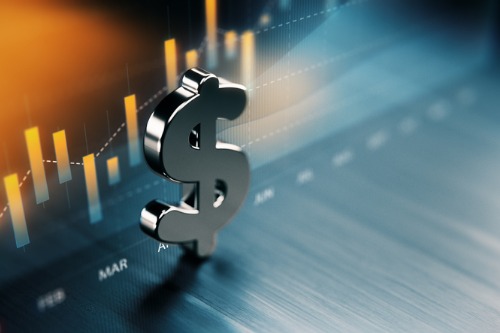Stock prices show a sizeable American premium over other regions, though it’s not as cut and dried as people may think

Anyone paying attention to stock valuations around the world may notice how U.S.-listed securities are valued much more highly than those in the rest of the developed world. The sheer size and seeming ubiquity of that premium have some concerned, particularly those worried about a mania that could be washed away during a correction.
But there are two reasonable explanations why American stocks stand head and shoulders over their counterparts. “First, the U.S. economy is doing much better than troubled Europe, aging Japan or Brexit-stricken Britain,” explained Wall Street Journal columnist James Mackintosh. “Second, the U.S. market includes the FANGs of Facebook , Amazon.com , Netflix and Google, now Alphabet, while the rest of the developed world has few big companies with high growth potential.”
Citing Refinitiv data, Mackintosh reported that the premiums on the price-to-book multiple for U.S. stocks over those elsewhere are highest since the dot-com bubble burst in 2011. Aside from that, American stocks have reportedly enjoyed the fattest price-to-book premium over the Eurozone, the U.K., Japan, and emerging markets since at least 1980.
“Comparing prices to 12-month-forward earnings estimates for MSCI indexes, the situation is perhaps even more extreme,” he continued. The U.S. stands at 17.4 times earnings, the Eurozone at 13.3 times, Japan at 12.9 times, and the U.K. reflects 12 times. Comparing the U.S. to each other country reveals gaps that are largest or close to the largest since the 1980s.
A breakdown of the Refinitiv data shows that the U.S. has a higher valuation than its three counterpart developed regions in six of the 10 high-level economic sectors (excluding real estate). In addition, it doesn’t have the cheapest valuation in any of the other sectors.
“Even where the U.S. lags behind—technology stocks are more expensive in the eurozone, industrial stocks in the U.K. and health-care stocks in Japan—the sheer size of the higher-value sectors in the U.S. helps boost the overall premium,” Mackintosh said.
The American label isn’t an automatic trigger for investors to buy a particular stock, however. A look at U.S.-based multinationals shows examples of some with poor underlying fundamentals — auto manufacturers or consumer-staples businesses, notably — trading at valuations equal to or lower than those of more fundamentally solid rivals that are based in other countries.
Mackintosh maintained that the U.S. premium is based on “better economic fundamentals and a core of strong companies.” Therefore, any concerns over a reversal should focus on threats to those two factors. Opposition to FANGs and other large disruptive U.S. companies has grown more severe, he noted; they face domestic challenges fueled by concerns on how their dominance impacts market competition, as well as a toxic political cocktail of international concerns as they get tagged for tax-avoidance schemes and their monopoly power.
On the economic side, figures released by Morgan Stanley earlier this year indicate a potential weakness. It estimated that 69% of U.S.-listed company revenue comes from the U.S., compared to less than 20% from the U.S. for European and Japanese stocks.
Conversely, “European and Japanese stocks have much more revenue from emerging markets, and in many ways are more exposed to global growth,” Mackintosh said. “If the world economy picks up, they should benefit more.”



